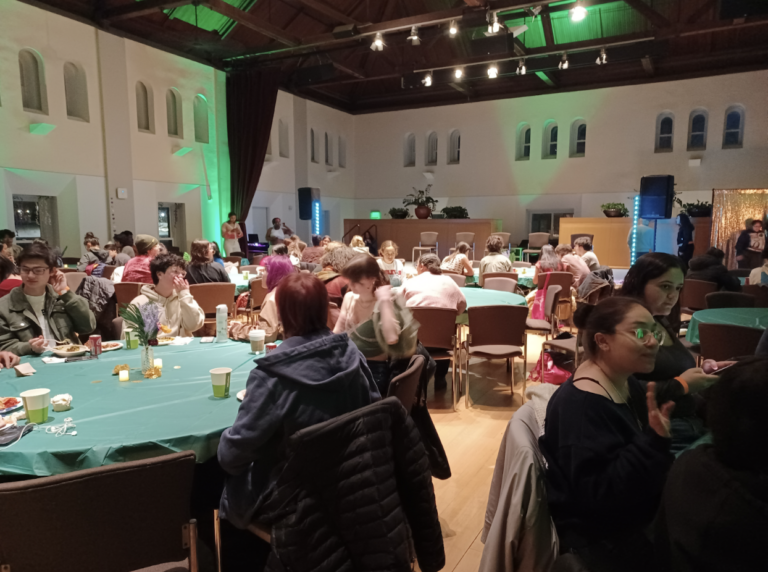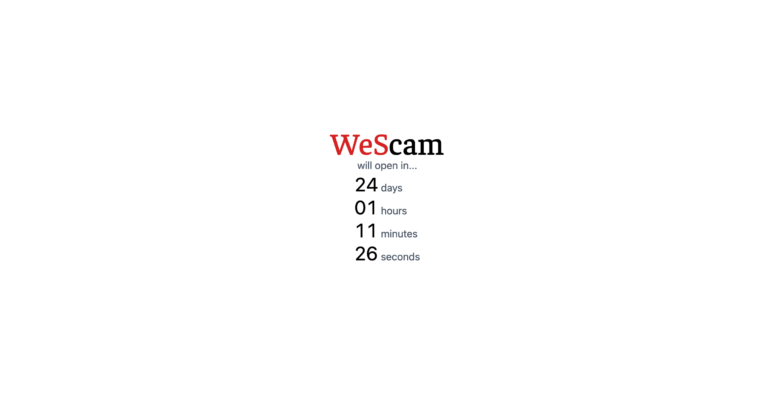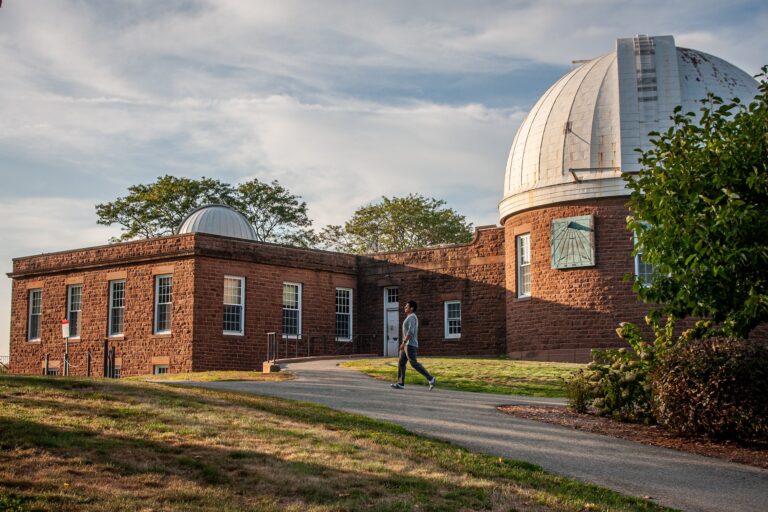As founding members exit, Wesleying looks to the future
As the student body has settled into its chaotic embrace with the information age, the ever-popular blog Wesleying has tapped into college life in a way that would most certainly seem alien to past generations of college students.
Every day, according to sitemeter.com, roughly 3,400 unique visitors log on to the blog to ingest a constant flow of on-campus events, countercultural gossip and anonymous comment section debates, many of which deal with some of Wesleyan’s most difficult issues. All the while, many of the core contributors who spend hours every day maintaining the unending flow of information have never even laid eyes on each other.
“I’ve never met Holly,” said prolific Wesleying blogger Ashik “Sheek” Siddique ’10, in reference to Wesleying co-founder Holly Wood ’08. “I’ve run into other contributors in real life and I’ll be like, ’Hey, I’m Sheek,’ and they’ll be like, ’Hey, I’m MadJoy.’”
Understandably, it can be bizarre to reconcile this intimate yet invisible realm with the sometimes-isolating real world of Wesleyan.
Now, as graduation approaches, Wesleying founders Xue “Ishuku” Sun ’08 and Wood have passed the torch on to a different generation of bloggers, namely Siddique and Justin “Justin L.” LaSelva ’09.
As Sun and Wood look back on Wesleying’s two-year history, both departing seniors are proud of how the blog has evolved and still feel passionately about their original purpose, which in certain ways was related to a perceived common experience of social and historical isolation at the school. Wood’s aim was to address and deal with what she characterizes as Wesleyan’s crisis of community—a multi-pronged problem, she feels, that has primarily to do with an out-of-touch administration, a structurally fragmented student body, and the pervasive, unabated revolution of personal technology.
“I was really sick and tired of feeling like there were eight different campuses here and I didn’t know what was going on in the other seven,” Wood said. “This school really lends itself to alienation.”
Wood also recalled that her class was the first to use Facebook, a development that she believes made her classmates increasingly self-conscious of whom they were hanging out with during freshman orientation, an undeniably nerve-wracking exercise in the first place. In terms of other technology affecting daily Wesleyan life, she also observed how common it is for students to take out their cell phones after class instead of socializing in the non-virtual world.
“You’ve got the Facebook, cell phones, the housing structure, and the school’s general lack of enthusiasm for orchestrating events or social spaces without some pretense of some higher purpose, while at the same time cracking down on events that don’t fit their grand scheme of how they want Wesleyan students to act in general, such as the crackdown on Zonker Harris Day because it was ’stupid,’” Wood said. “That’s why we started Wesleying, because we were up against all this bullshit that’s ripping us apart—and it’s not just us, it’s at every college.”
But there were other, different desires invested in the blog. For Sun, it was all about preserving Wesleyan history—an effort that is more evident when one looks back in the archives at some of the earliest posts. Besides constant exhortations to elect alum Bradley Whitford ’81 as the next Wesleyan president, there is a post that investigates the history of the Wesleyan dating scene. In the post, Wood cited a 2001 Argus article in which then-WSA Vice President Jenny Ma ’01 revealed that, when polled, Wesleyan students indicated their biggest dissatisfaction with the school was the dating scene. As a result of the problem, Wood wrote, there was a special student telephone dating line that once existed as well an annual WSA-funded event called “Ask Someone Out Week,” though both initiatives died out eventually.
As the blog has aged and Wood and Sun have ceded their prominent roles to others, such posts have often been edged out by event advertisements. The vast majority of organizers on campus have realized that there’s no better way to publicize an event than by posting it on Wesleying and event posts now greatly outnumber any other kind.
Overall, however, Wood stressed that while there seems to be far less content than there used to be, she believed such perceptions can be attributed to the sheer number of daily event posts.
There have been other issues as well. Many contributors resent the often-negative anonymous comments left on their posts.
“If you look at all the anonymous comments we get, about ten percent of them say something useful,” LaSelva said.
This semester, LaSelva began a series of posts entitled “In the Middle,” all of which dealt with issues in Middletown, such as the recent controversy over a proposed army base. Often, many of the comments on the posts criticized LaSelva for his chosen title for the series.
“While I think it’s good to pay attention to Middletown events, I feel like giving them the special ’In The Middle’ title does more to separate ourselves from the town rather than keep us involved,” one anonymous commenter wrote. “I think it should be posted as regular Wesleyan news.”
Eventually, after a prolonged struggle, LaSelva discontinued the series, though he said that it was not because of the controversy surrounding it. Such incidents sparked a conversation between the contributors on the merits of anonymous comments. Ultimately, they felt no need to change anything, citing the importance of having a forum for completely free student expression.
Lately, the contributors have organized modestly attended meetings to discuss such internal issues. Another looming question has been that of organization—whether to reshape the amorphous, non-hierarchical nature of contribution into something more cohesive. Ultimately, while most applaud the malleability of the medium, there doesn’t appear to be any strong desire to turn the blog into a more organized unit that performs traditional reporting and actively recruits new writers.
“My personal interest was to preserve Wesleyan history,” Sun said. “We really didn’t intend it to be a periodical.”
LaSelva and Siddique, however, who appear to be assuming central roles in the blog’s future, seem to be o.k. with upping the amount of content and perhaps organizing a little. Siddique, in particular, said that he would be fine with moving towards the model of Slate, an online magazine published by the Washington Post that combines witty commentary, light reporting, and a sense of humor.
“Wesleying is a casual blog and I like that, but I just want to throw in some things that get people to talk more, I guess,” Siddique said. “I want to raise the level of discourse at Wesleyan. I get kind of irritated when it’s 70 event posts in a row, because that’s not all it needs to be.”
Without a set plan of action for the future, it’s not clear what will happen to Wesleying. Ultimately, however, the founders fully realize that the little blog they began as a guide for wide-eyed incoming freshmen will most likely go through many more changes in the future that they will have little control over.
“Whatever the next evolution of Wesleying is going to be, that’s completely in their hands,” Sun said. “That’s the beauty of it.”







Leave a Reply